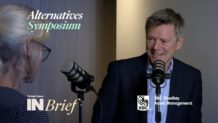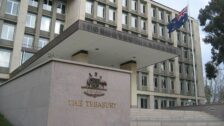Parametric highlights key trends emerging as the YFYS legislation nears
Global investment manager Parametric (part of the Morgan Stanley group of companies), which advise on over $378 billion in assets, this week highlighted key issues with the impending Your Future Your Super (YFYS) legislation.
Among its views was the need for many funds, but particularly those with weaker recent performance, to “focus on the basics” and look at reducing both tax and fees.
According to Whitlam Zhang, manager, research and strategy at Parametric, “active managers will have to substantially reduce their risk budgets, compared with the way things work now.” This, he suggests, is due to the proposals under YFYS that will require the Australian Prudential Regulation Authority (APRA) to construct an individual benchmark for every MySuper product to compare its performance. These benchmarks will rely on passive indices and take into account everything from tax and fees.
According to Zhang, “fund trustees will have to think creatively and make some tough decisions. Tax-managed strategies will have a role to play. In the quest for delivering the best financial results for members, sometimes it helps to focus on the simple things, such as paying less tax and reducing fees.”
The penalties are significant of course, with funds that underperform their net investment return benchmark by 0.5 percentage points per year over an eight-year period classified as “underperforming.” Underperforming funds will not be able to accept new members until their performance improves.
This has far-reaching implications for the sector, but also opportunities for the independent financial advisery market, which in many cases competes for clients with the major industry funds. “Clearly this will change the way super funds think about fund manager selection,” says Zhang. “It will raise the bar for how much conviction is needed before selecting a fund manager.”
Parametric suggests that asset managers whose universe differs from their benchmark may also be less attractive, including both alternatives managers and those that pursue more ‘niche’ strategies. Interestingly, financial advisers, at this point anyway, have no such fee budgets or external benchmarks to which they are being compared. Ultimately, it is the end-clients that make the decision on performance, but also on the service they provide; not the prudential regulator.
If current suggestions are true, and major funds will be forced more towards lower-cost, passive strategies, advisery firms with a broader universe of investments and no real fee budget will have a major source of differentiation from their industry fund competitors.
This is likely important at a time when global markets, both bonds and equities, are trading at or near all-time highs with volatility expected to increase. Similarly, with low-risk appetites, allocations to private markets may also need to be cut.
Zhang highlights that the retreat to passive investing isn’t without risks, saying that “by definition, a super fund investing passively cannot fail the performance test, but whether it is the right investment decision for the fund is another matter.
“Indices can vary greatly within an asset class and selection of an index can potentially introduce as much active risk as an active fund manager. And in the passive investment universe, there is no flexibility to incrementally add value through tax management,” he says.
Concluding, he suggests that “fund trustee should consider tax-managed passive investing, particularly in listed equities portfolios, which are generally the biggest drivers of risk and return in a super fund portfolio.”










